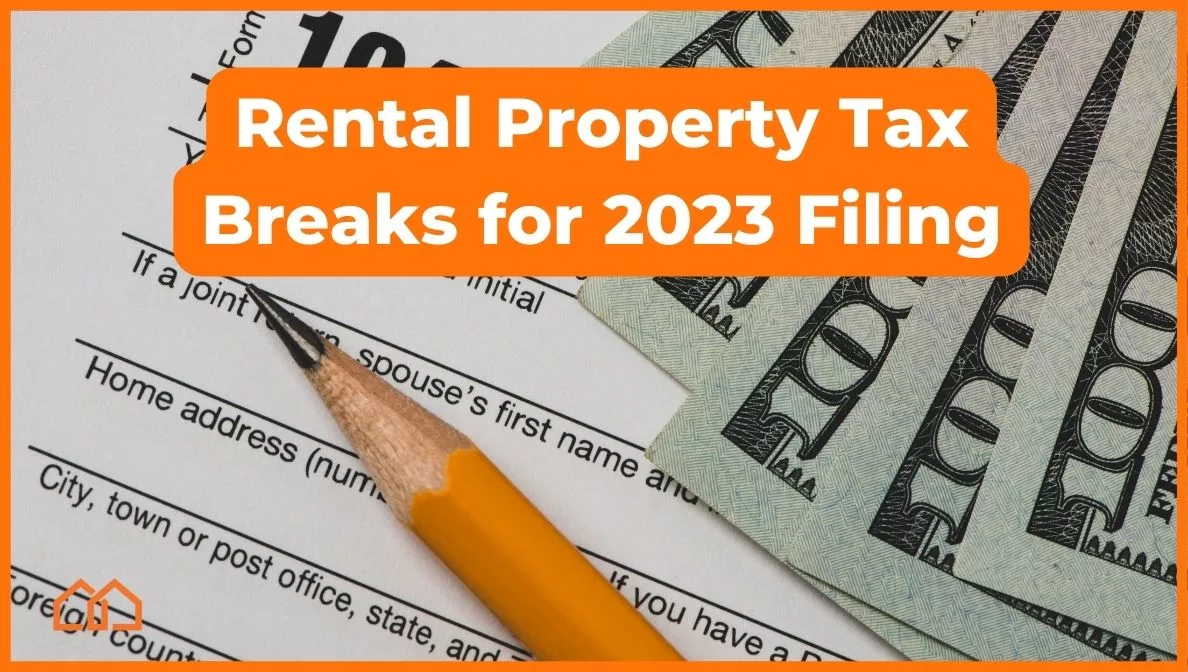Rental Property Tax Deductions for 2023 Filing
Managing a rental well maximizes your resident’s satisfaction and your bottom line. It’s a win-win, especially when you can claim the most rental property tax deductions. After all, every dollar counts toward expanding your margin. So, without further ado, what are the best rental property tax deductions you can make this tax year?
- P.S. Need a tax pro? Dickson & Associates has your back. They can answer all your burning questions like “what goes on a schedule e,” “how to get all the best rental property owners’ tax benefits,” and what qualifies as taxable income from rentals.
Disclaimer: This blog is for informational purposes only but not a complete guide. Please consult a tax professional for the most accurate and up-to-date information regarding income tax credits.
Rental Property Tax Deductions and Other Tax Breaks
There are plenty of real estate tax breaks to be had as a self-employed landlord. Tax benefits will depend on your tax bracket and other factors like rental income.
1. Mortgage Interest
If you didn’t pay all cash for your real estate investment like many other real estate investors, then you are making mortgage payments, which generate considerable amounts of interest. Interest deduction is among the largest deductible expenses you can claim on your rental real estate property. Interest from a HELOC also belongs to this category.
2. Depreciation Deduction
Since buildings lose value (aka useful life) as they age, taxpayers can claim depreciation over 27.5 years for residential and 39 years for non-residential properties. Due to this figure, the IRS allows you to deduct 1/27.5th of a residential property’s value each year on your taxes, and 1/39th of a commercial property’s value.
- Note: Depreciation can happen at different rates, necessitating “segmented depreciation,” in which you can claim more depreciation on certain parts of your rental, such as appliances. If you take the time to do this paperwork, you can save even more during tax time.
3. Loan Fees
If you recently bought an investment property with a loan, you could deduct the loan origination fees, closing costs, and other related interest. These can be difficult to identify on your own, so get the advice of a financial advisor to ensure you’re claiming the right figures.
4. Losses from Theft or Damage
If your commercial or residential rental property experiences theft or damage, then you can claim them as business expenses. Since loss negatively impacts your expected rental property income, this deduction offers some protection for landlords. There are limitations on what can be claimed, so speak to your financial advisor to get the specifics.
5. Transportation
Landlords do a surprising amount of driving. You conduct business at the bank, may pick up DIY repair supplies (like a faucet) from the hardware store, meet with partners, or simply drive to the investment to conduct an inspection.
According to the IRS, you can claim a standard mileage rate of $0.56/mile. Log your miles according to IRS standards to ensure your numbers are fair and honest.
6. Maintenance and Repairs
Whether you need to pay for landscaping, fixing a broken garbage disposal, or any other upkeep rental expenses, you can write off these costs. So, if your unit needs a new coat of paint or carpeting, rest assured that you can recoup some of those expenses during tax time.
- Note: Significant and expensive improvements, such as fully replacing all windows or a new roof, can qualify as capital improvements, which must be deducted as depreciation.
7. Utilities
If you pay any or all utilities for your rentals, then you can claim these property expenses on your tax return. Be sure that your rental income doesn’t include reimbursement for utilities because this means you can’t legally make this claim. Claiming these expenses can reduce your tax bill and increase your business income.
8. Home Office
When you take care of your real estate business in a home office that is not used for any other purpose, you can deduct part of your home expenses. If you use your home office frequently, this can become one of your best tax breaks!
- Note: Claiming a home office can increase your chance of getting audited, so it’s wise to hire professional tax preparation to make sure your paperwork is in order.
9. Business Trip Expenses
Travel is one of the joys of work, and you get a win-win when you can deduct your travel expenses from your taxes. This can include meals, transportation costs, and lodging. However, this one can be difficult to prove without ample documentation, so keep accurate records of your mileage and the listings you visit when you are traveling.
- Note: When visiting properties that you own, you can deduct 50% of meal costs during travel. You may deduct 50% of meal costs when you are meeting with business partners in your “home market” (a 40-mile radius of your primary residence).
10. Employees/Independent Contractors
If your rental business requires staff and outsourced help, then you may deduct what you pay them on your year-end taxes. After all, these operating expenses add up quickly. Simply file 1099s for your contractors and employees for who you have paid more than $600 during the year.
11. Professional Fees
If your rental business depends on outsourcing property management, new resident placement fees, legal fees, accounting fees, and other business expenses related to paying other pros to help (who aren’t your employees) can be deducted as professional services fees.
12. Property Taxes
Landlords pay property taxes on every investment that they hold. You can claim these expenses on your taxes. Check with your tax professional to make sure you’re claiming the right amount for long or short-term rentals.
13. Insurance Premiums
Any insurance plan premiums that you pay that are related to the rental can be deducted, such as homeowners and liability insurance, you can also deduct health insurance and workers comp for employees.
14. 1031 Exchanges
Marketplace Homes can gladly assist you with 1031 exchanges, which allows landlords to defer capital gains tax and depreciation recapture into another “like” property. This allows you to grow your portfolio without worrying about capital gains tax hits.
15. Opportunity Funds
This year, real estate investors get some extra perks through the Tax Cuts and Jobs Act. Through this act, various aspects of rental tax deductions were reformed.
Opportunity funds are among these changes, which allow landlords to reduce and defer capital gains tax after selling an asset. This is available under certain conditions, so it’s essential to consult a financial advisor about this deduction.
We all have to pay taxes. Paying less by getting the most tax write offs as possible can maximize your annual cash flow. If you need to find out more ways to stretch your net income, then get in touch with a tax professional today.
Tax Benefits of Rental Properties
While we aren’t tax professionals like the CPAs at Dickson & Associates , we are experts in real estate. Not only is Marketplace Homes a property management company, but we have real estate agents who can help you find the most strategic homes. If you have your eyes on an investment property or want to buy a new construction home, we can help you. For more information, contact us today!
Alicia Persson is a Content Strategist SEO writer at Marketplace Homes, utilizing previous years of experience on real estate teams that specialized in investments and property management. Before she joined Marketplace Homes, she was also a freelance writer for 7 years, leading to a specialization in real estate and home living content for boutique digital marketing agencies. During her writing years, she learned the basics of SEO and gained experience writing for many different clients, making her versatile at creating diverse content.
She is a proud University of Virginia master’s graduate and enjoyed her undergraduate years at the University of Mary Washington. When Alicia is not writing, she plays keytar and sings in a local 90’s rock cover band, or she spends time with her amazing family.

